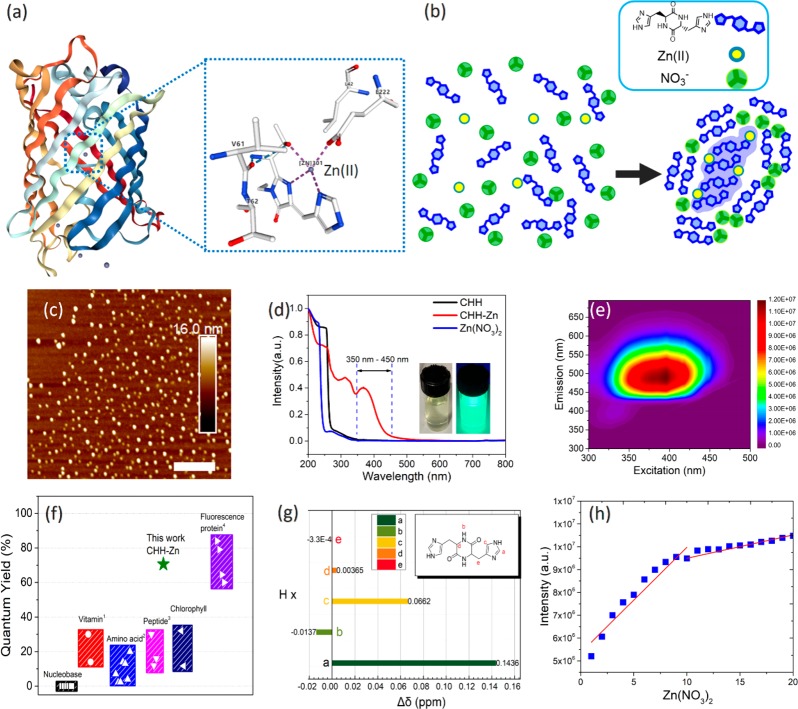Figure 1.
Design of self-assembled fluorescent cyclic dipeptide by the biologically inspired molecular structure of BFPms1. (a) BFPms1 overall structure and its coordination geometry with Zn(II). (b) Scheme of self-assembly mechanism of CHH, Zn(II), and NO3–. (c) AFM image showing the presence of ∼30 nm nanoparticles. Scale bar = 400 nm. (d) Normalized UV–vis spectra of CHH–Zn, CHH, and Zn(NO3)2. (Inset: CHH–Zn under daylight (left) and UV lamp (365 nm right)). (e) Excitation–emission matrix contour profiles of CHH–Zn. (f) Comparison of the quantum yield of different fluorescent biometabolites with CHH–Zn marked with a green star (vitamin, riboflavin, α-tocopherol; amino acid, Phe, Tyr, Trp, Ala, His, Lys, Ser; Peptide, Trp-Phe+Zn(II), cyclo-WW+Zn(II), Phe-Phe-Phe;20,38,39 GFP, sg11, avGFP, sapphire, H9). (g) 1H chemical shifts of CHH–Zn, compared to the peptide alone. (h) Job plot analysis of CHH with Zn(NO3)2.

